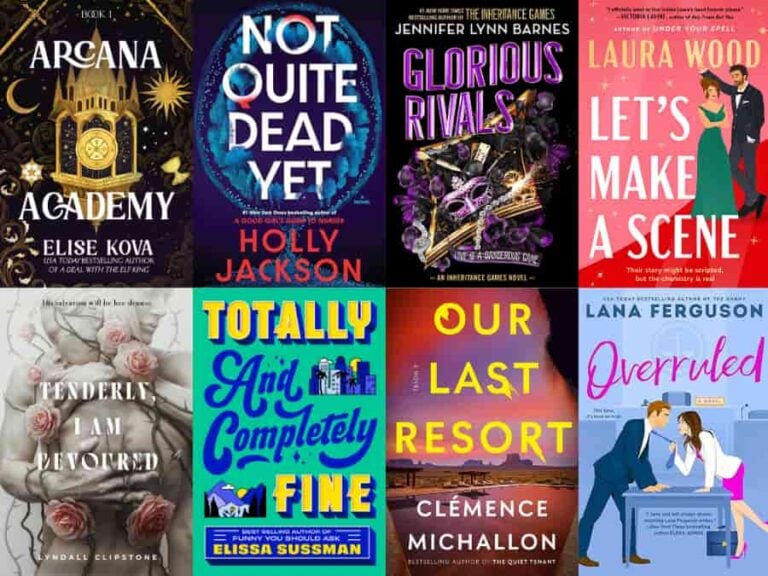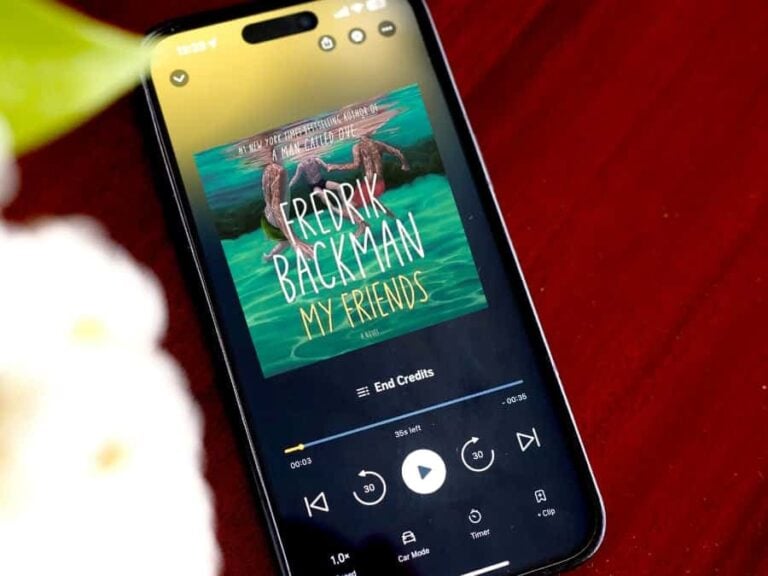This post may contain affiliate links which means if you make a purchase through my links, I will get a small commission at no extra cost to you. I only recommend the products I love and trust.

29 Book Club Questions for The Lost Apothecary by Sarah Penner
Dive into 29 book club discussion questions, snack ideas, book club activity ideas, and themes for The Lost Apothecary by Sarah Penner.
I’m a huge fan of historical fiction, so when I found out about The Lost Apothecary, I knew I had to read it. And just like I expected, it was a fabulous book. From the first page itself, I was transported to 18th-century London, where a hidden apothecary shop holds secrets.
I absolutely loved how author Sarah Penner weaves two different time periods together in the book. The richly detailed settings, the characters with hidden agendas, and the female friendships had me completely engrossed. And I even looked up a few places to go mudlarking too.
So, if your book club has decided to read this book, let me help. Here are the best book club questions for The Lost Apothecary. I’m sure these thought-provoking discussion questions will help you dig deep into the nuances and themes of the novel.
The Lost Apothecary by Sarah Penner Summary

A female apothecary secretly dispenses poisons to liberate women from the men who have wronged them – setting three lives across centuries on a dangerous collision course.
Rule #1: The poison must never be used to harm another woman.
Rule #2: The names of the murderer and her victim must be recorded in the apothecary’s register.
One cold February evening in 1791, at the back of a dark London alley in a hidden apothecary shop, Nella awaits her newest customer. Once a respected healer, Nella now uses her knowledge for a darker purpose – selling well-disguised poisons to desperate women who would kill to be free of the men in their lives. But when her new patron turns out to be a precocious twelve-year-old named Eliza Fanning, an unexpected friendship sets in motion a string of events that jeopardizes Nella’s world and threatens to expose the many women whose names are written in her register.
In present-day London, aspiring historian Caroline Parcewell spends her tenth wedding anniversary alone, reeling from the discovery of her husband’s infidelity. When she finds an old apothecary vial near the river Thames, she can’t resist investigating, only to realize she’s found a link to the unsolved “apothecary murders” that haunted London over two centuries ago. As she deepens her search, Caroline’s life collides with Nella’s and Eliza’s in a stunning twist of fate – and not everyone will survive.
BUY NOW ON AMAZON | LISTEN FREE ON AUDIBLE
Best The Lost Apothecary Book Discussion Questions
The Lost Apothecary begins with Nella preparing poison in her shop. What was your first impression of her as a murderer? How did your opinion change after learning about her past?
Nella’s shop is a place of both healing and harm. Discuss the dual nature of her apothecary and its symbolic significance in the novel.
Consider the ethical implications of Nella’s rule about not harming women. How does this reflect on the societal values of her time and ours?
Eliza’s growth throughout the novel is significant. Discuss her journey from innocence to a more complex understanding of morality.
Analyze the importance of the river Thames in the novel. How does it serve as a metaphor for the flow of secrets and history?
Caroline’s relationship with her husband is a pivotal part of her story. Discuss how betrayal shapes her character’s development and decisions.
The novel explores the idea of legacy. What legacy do Nella and Eliza leave behind, and how is this discovered in the present day?
Discuss the motif of hidden things (the apothecary shop, the register, personal secrets). How does this motif drive the narrative?
The use of poison is a form of empowerment for some characters. Discuss the paradox of poison as a means of liberation.
Caroline’s role as a historian is crucial to unveiling the past. Discuss the significance of preserving and uncovering history in the novel.
The novel is rich in historical detail. Discuss how these details enhance the atmosphere and contribute to the authenticity of the story.
Analyze the transformation of Nella’s character from a healer to someone who aids in murder. What does this say about desperation and moral boundaries?
The theme of justice is woven throughout the novel. Discuss how justice is sought and achieved by the characters across both timelines.
Explore the concept of sisterhood and solidarity among women in the novel. How does this influence their decisions and fates?
The apothecary’s register is a silent witness to many stories. Discuss its role as a character in its own right.
The novel touches on the limitations and expectations placed on women in the 18th century and today. Discuss how these themes are portrayed.
Caroline’s discovery ties her to women from the past. Discuss the significance of connections across time in shaping identity and understanding.
The apothecary shop is a secret known to a few. Discuss the power and consequences of keeping such a secret.
How do the past and present narratives complement each other?
Explore the moral ambiguity presented in the book. Is Nella justified in her actions? Why or why not?
Caroline’s discovery leads her on a journey of self-discovery. Discuss how personal crises can lead to unexpected paths.
How does the author portray the theme of revenge? Discuss its implications on the characters and their relationships.
Discuss the portrayal of men in the novel. Are they one-dimensional villains, or does the author provide a more nuanced view?
How does the novel address the issue of women’s autonomy and agency during the 18th century compared to the present day?
The novel concludes with a significant twist. Discuss how this twist affects your understanding of the characters and their actions.
Who is the most compelling character among Nella, Eliza, or Caroline, and why do you think so?
It seems like many readers found The Lost Apothecary to be underperforming compared to their expectations. What are your thoughts on this?
What do you think about mudlarking, which involves scavenging in river mud for valuable items, before reading this novel? Would you consider giving it a try in the future?
Finally, discuss the book’s ending. Were there any loose ends you wished had been resolved? How does the ending affect your overall perception of the novel?
Book Club Theme For The Lost Apothecary
Secrets and Survival is the best theme the book. It’s all about diving into the world of Sarah Penner’s novel and exploring the secrets and survival skills of the characters. Make your meeting area look like an old apothecary shop from the 18th century by adding apothecary jars, vintage books, and herbs as decorations. You can also get everyone involved by suggesting they dress up in either 1790s-style clothing or something modern to represent the book’s dual timelines.
Book Club Activities For The Lost Apothecary
- Apothecary Workshop: Host a workshop where members can learn to make simple, non-toxic herbal remedies or beauty products, reflecting the apothecary’s knowledge.
- Historical London Map Exploration: Use maps of 18th-century London to discuss the settings where the story unfolds. Compare it to present-day London.
- Genealogy Dive: Encourage members to bring stories or research about their ancestors, highlighting any connections to historical events or occupations.
- Character Defense: Divide into groups and have each one prepare a defense for a character’s actions, presenting to the club.
- Poisonous Plants: Have a presentation or guest speaker talk about the history and use of poisonous plants in medicine and murder.
The Lost Apothecary Discussion Questions PDF
Download the free pdf with 29 book club questions for Sarah Penner’s The Lost Apothecary.
The Lost Apothecary Book Club Snack Ideas
- Herbal Teas: Serve a variety of herbal teas that could have been found in an apothecary’s shop.
- 18th Century British Snacks: Offer foods that might have been common in 1791 London, such as meat pies or bread with cheese.
- Modern British Bites: Include contemporary British snacks as a nod to the present-day narrative, like mini scones or cucumber sandwiches.
- Apothecary Jars Desserts: Use clear jars to serve layered desserts or sweets, mimicking the look of apothecary jars filled with remedies.
- Poison Apple Cocktails: Create a signature cocktail or mocktail that looks deceptively dangerous, using ingredients like apple cider for a poison apple theme
- Non-alcoholic Black Cherry Water
- Rosemary Butter Biscuit Cookies : Below is the recipe from the book
1 sprig fresh rosemary
1 ½ cup butter salted
⅔ cup white sugar
2¾ cup all-purpose flour
Method:
Remove leaves from rosemary and finely chop (approximately i Tbsp
or to taste) Soften butter; blend well with sugar. Add rosemary and flour; mix well until dough comes together. Line 2 cookie sheets with parchment
paper. Form dough into 1.25-inch balls; press gently into pans until
0.5-inch thick. Refrigerate at least an hour. Preheat the oven to 375°F. Bake for 10-12 minutes, just until the bottom edges are golden. Do not overbake. Cool for at least 10 minutes. Makes 45 cookies
Books Like The Lost Apothecary

The Miniaturist by Jessie Burton: Set in 17th-century Amsterdam, this novel follows a young bride who receives a mysterious dollhouse that seems to predict the future. It combines historical fiction with elements of mystery and secrets.

Lessons in Chemistry by Bonnie Garmus: This book tells the story of Elizabeth Zott, a fictional 1960s housewife turned television scientist. I absolutely loved this book. And I really think you would love it too. There are elements like the strong female characters and a blend of science and personal growth.

Of Women and Salt by Gabriela Garcia: This novel spans generations and continents. It focuses on the lives of women from different backgrounds. There are also themes of family, migration, and resilience. If you enjoyed the multi-generational characters of The Lost Apothecary, this book is also a good novel to read after.

Libertie by Kaitlyn Greenidge: Set in the era of the American Civil War, this novel follows the life of Libertie Sampson, a free Black girl who aspires to become a doctor. It explores themes of identity, freedom, and societal expectations. Another compelling historical fiction with strong female protagonists.
Conclusion
There you have the complete book club ideas The Lost Apothecary. I am sure this combination of thought-provoking discussion questions, engaging activities, and thematic food will make your book club meeting memorable.
Explore More Discussion Questions for Book Club
The Seven Husbands of Evelyn Hugo: 25 Book club Questions
Verity by Colleen Hoover: 36 Book Club Questions
51 Lessons in Chemistry Book Club Questions & Snack Ideas
31 Tom Lake by Ann Patchett Book Club Questions & Snack Ideas
33 Book Club Questions For Wrong Place Wrong Time by Gillian McAllister




